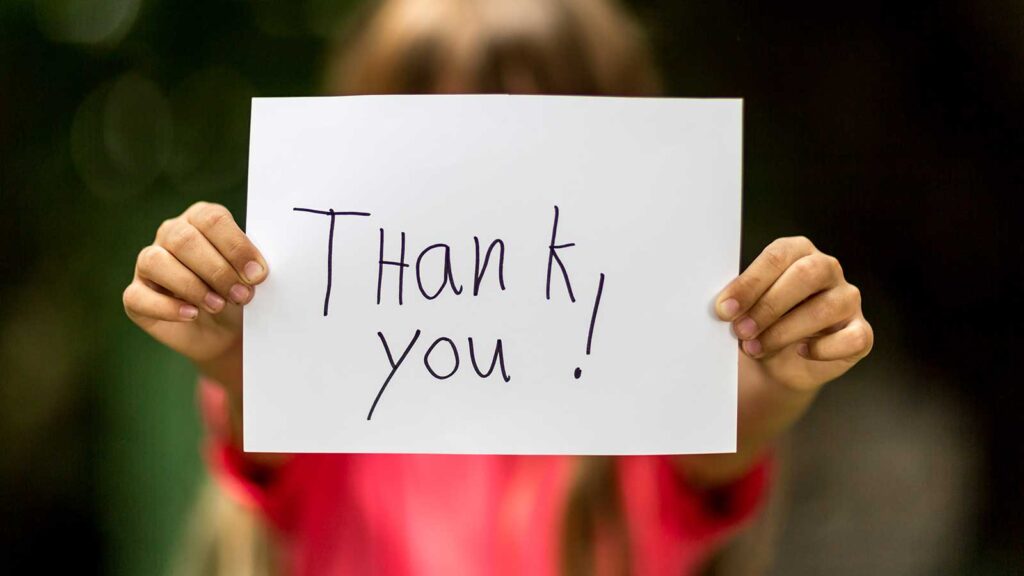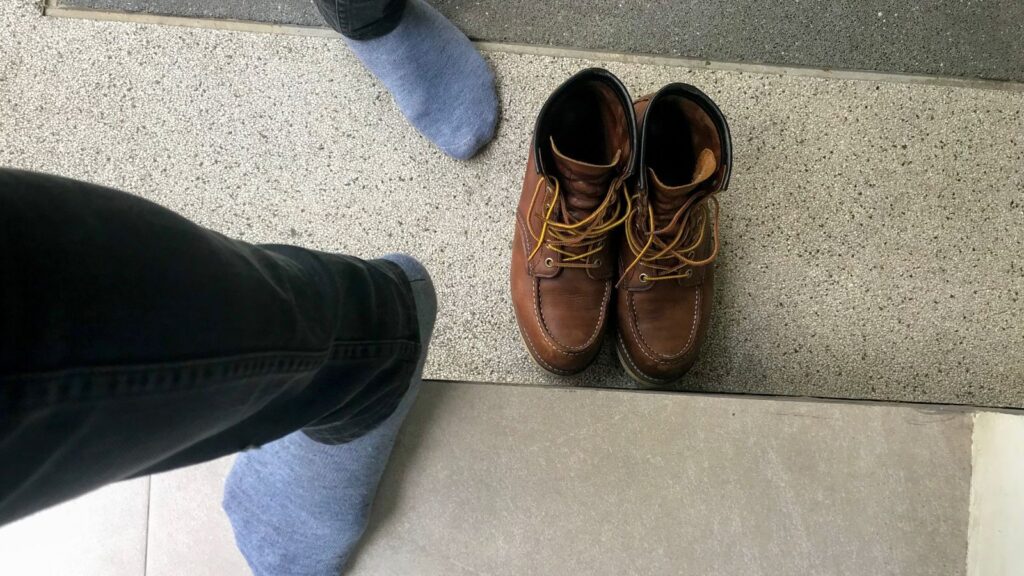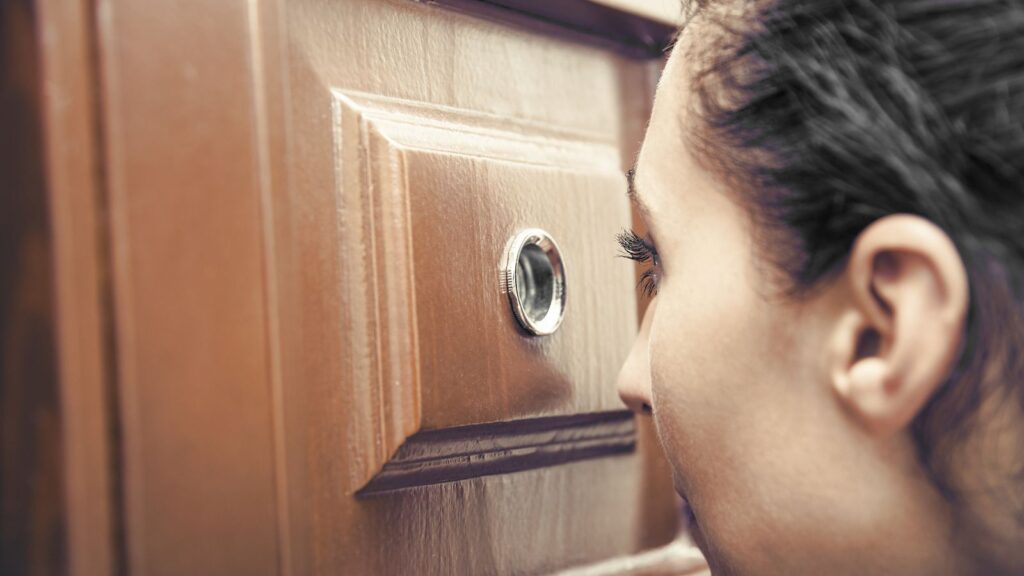Ever wonder why you get the side-eye at parties or have stopped receiving invitations to events with friends? Many people miss a few basic expectations of manners and etiquette. Here are 18 examples of how you might be exhibiting bad manners and poor etiquette on a daily basis.
Not Saying Please and Thank You

Indeed, the most basic foundation of manners is saying please and thank you. It might be the first rule you are taught as a child to acknowledge someone who has done something for you, whether it is big or small, with a thank you and to say please if you are asking for something. Nevertheless, many people seem to have forgotten this golden rule or otherwise neglected to use it. Using your P's and Q's is the first stop for anyone looking to improve their manners and etiquette.
Staring at Your Phone

Is there anything worse than trying to talk to someone whose eyes can't be torn from their phone? When conversing with one person or in a group, giving the person speaking your full attention is important. Use eye contact and engage in a conversation rather than staring at your phone, which is a sure way to irritate the person trying to communicate with you.
Coughing or Sneezing Without Covering Your Mouth

This is another childhood lesson that some have neglected to follow. Sneezing and coughing in public sometimes can't be avoided, but covering your mouth with a hand or preferably an elbow is a sign of politeness and respect for those around you, who can do without the cold germs you could be spreading.
Interrupting Others in Conversation

If you find yourself butting into conversation when someone else is speaking, it's possible you need to be more conscious of letting others finish their sentences. A conversation is a two-way street, not an opportunity for one person to speak over another or assert their opinion at the expense of another. Politely listen and wait your turn to become a more gracious communicator.
Regularly Late

Turning up late to parties, meals, and events can be seen as a sign of disrespect to the host and certainly a display of bad manners. If others have to wait for you, especially if it is a common occurrence, it can cause a lot of frustration and signal poor manners and respect. Set a reminder, manage your time, and show up at the arranged time or a few minutes beforehand.
Not Doing your Fair Share

In settings where everyone works together to achieve a common goal, it is important to chip in equally in the interest of fairness. For example, if you haven't taken part in the preparation or cooking, you might offer to wash the dishes when cooking a group meal. Or perhaps, when working on a group project, you ensure you do an even amount of the required work. Appearing to be lazy or allowing others to pick up your slack disrespects their time and poor etiquette.
Using Foul Language in an Inappropriate Context

There is a time and a place to use informal language, and it is important to distinguish when that time and place is. Perhaps amongst close friends, you can speak candidly and with no filter, but doing so in a professional setting, for instance, is rude and bad manners. Using a bit of initiative to read the room and adjust your language accordingly is an excellent way to brush up on your social etiquette.
Eating with your Mouth Open

No one likes to see what someone else is eating as they are eating it. A simple and beginner step in etiquette, chewing with your mouth closed is a basic but very important way to display good manners at the dinner table and beyond.
Being Impolite to Hospitality Workers

Is there anything more embarrassing than being with a friend who is rude to your server? A blatant signal of bad manners and arrogance, treating service workers disrespectfully or speaking to them dismissively is very rude. Instead, treat them with the kindness you wish to be spoken to, and acknowledge that they have just as much right to respect and dignity as yourself and anyone they serve.
Disrespecting Other People's Personal Space

People have boundaries for a reason and are completely within their rights to enforce them. Touching someone without their consent or invading their personal space excessively is impolite and can make individuals uncomfortable. Breaching these boundaries is a sign of poor manners and a lack of self-awareness. Take a moment to assess how well you know a person if it is appropriate to be in their personal space if you have consent, and if in doubt, keep your distance.
Wearing Shoes in Someone's Home

Some people don't mind wearing shoes in the house, and others do. Even if you walk around in your outside shoes in your home, that doesn't mean the same rules apply to somebody else's home. Respect the etiquette of wherever you are, as the host decides, and remove your shoes if required. Showing that level of understanding of someone else's home and preferences is an example of good manners.
Being Too Loud in Public Settings

In the waiting room at the doctors or on a quiet bus? Maybe consider keeping the noise down. Blasting your music or speaking loudly on the phone in quiet public places can be deemed rude when it disrupts other people going about their day mindfully of others. Showing an awareness of people sharing a space with you by keeping noise to a minimum is a smarter way to go about your day.
Arriving Unannounced

Turning up on a friend's doorstep without warning can be bad manners. Perhaps you have that arrangement, and both do that to each other, but if not, surprise someone before they have had a chance to prepare or tell you whether it is convenient signals that you think your convenience is more important. Consider reaching out to your friend and finding a mutually convenient time and place to show that you have the manners to prioritize their schedule, too.
Hesitance to Share

Opening a bag of popcorn and keeping it all for yourself isn't a good look. If you have enough to go around, why not show your generosity and impeccable manners by offering to those around you? Chances are they politely decline or take a small amount, but by offering to share, you have shown your selflessness and been polite.
Not Holding the Door Open for Others

If you let the door slam behind you in somebody's face, you certainly have work to do on your manners and etiquette. Taking the extra few seconds to hold the door is not a big sacrifice, and it shows a willingness to help strangers and be considerate of those around you. A simple yet fundamental sign of good manners, holding the door open is an easy step to perfect etiquette.
Ignoring People

Leaving an individual out of a conversation or party can be very hurtful. Rather than excluding any single person in a social setting, make an effort to include them in the group, making introductions or asking questions. Not only is this a great example of good manners, but it is also a good way to strengthen friendships and connections and spread kindness.
Skipping the Queue

Nobody likes waiting in line, but unfortunately, it is a key function of society and one that applies to everyone, irrespective of their background or standing. By pushing in, you signal that your time is more important than the other people waiting in the queue. No one is exempt from lining up at the shop, airport, or bus stop, so brush up on your manners and wait it out.
Overly Gossipy

Talking negatively about other people, spreading rumors, or casting doubt on friendships is a sure way to turn people off. Being overly gossipy is not pleasant to be around and often leads people to question whether or not you can be trusted with personal information. This prevents enduring, trusting friendships and exemplifies poor etiquette, choosing to talk badly about other people rather than contribute positively to the conversation.
18 Behaviors Branded as Low-Class by Society

18 Behaviors Branded as Low-Class by Society
18 Reasons Gen Z Believes They Should Be Paid Without Working

18 Reasons Gen Z Believes They Should Be Paid Without Working
18 Ways Parents Raise Failed Adults

18 Ways Parents Raise Failed Adults
18 Work Practices Millennials & Gen Z Refuse to Accept

18 Work Practices Millennials & Gen Z Refuse to Accept
23 Personal Topics You Should Never Share With Others

